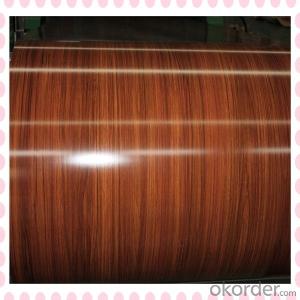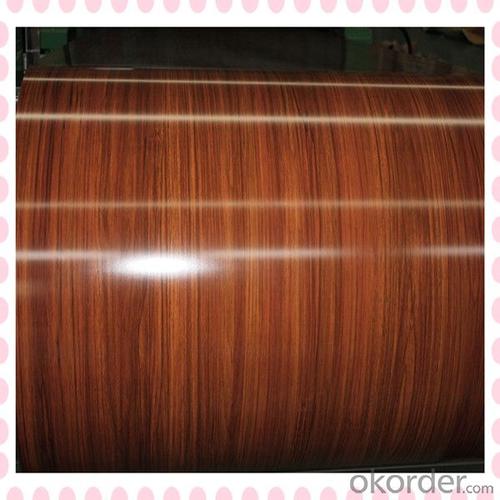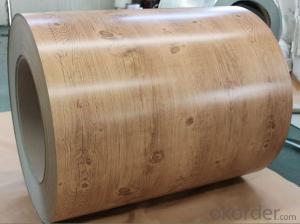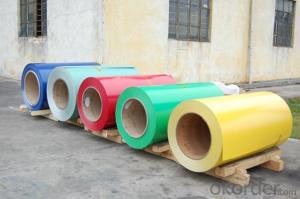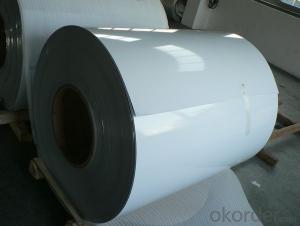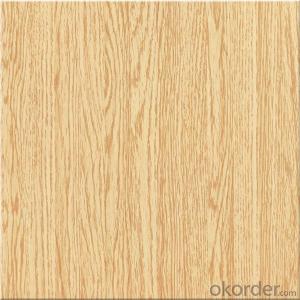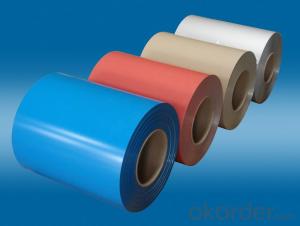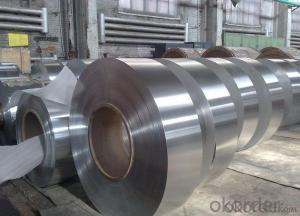Aluminum Coil 8 X 50 - Wooden Surface Coating Aluminum Coil for Interior Wall System
- Loading Port:
- Shanghai
- Payment Terms:
- TT OR LC
- Min Order Qty:
- 5 m.t.
- Supply Capability:
- 10000 m.t./month
OKorder Service Pledge
OKorder Financial Service
You Might Also Like
Specification
1. Specification of Wooden Surface Coating Aluminum Coil for Interior Wall System
characteristics | Application |
1) Super peeling strength | 1) Building exterior curtain walls |
2) Excellent surface flatness and smoothness | 2) Decoration and renovation additions for old buildings |
3) Superior weather, corrosion, pollutant resistance | 3) Decoration of interior walls, ceilings, bathrooms, kitchens and balconies |
4) Even coating, various colors | 4) Shop door decorations |
5) Fireproof, excellent heat and sound insulation | 5) Advertisement board display platforms and signboards |
6) Superior impact resistance | 6) Wallboards and ceilings for tunnels |
7) Lightweight and easy to process | 7) Industrial materials, materials for vehicles and boats |
2. Application of Wooden Surface Coating Aluminum Coil for Interior Wall System
(1).Interior: wall cladding, ceilings, bathrooms, kitchens and balconies, shutters, doors...
(2).Exterior: wall cladding, facades, roofing, canopies, tunnels,column covers , renovations...
(3).Advertisement: display platforms, signboards, fascia, shop fronts...
3. Feature of Wooden Surface Coating Aluminum Coil for Interior Wall System
*Such coil is specially designed to replace aluminum ingot, due to the high export tax of aluminum ingot, the coil has better price than ingot.
*This type of coil can fit customer's remelting furnace just like ingot, no need to make any change to the production line that was previously used for ingot. The standard coil size and weight is very suitable for the feed gate of furnace.
*This type of coil causes less material wastage than ingot when remelted.
*Our coil is made directly from ore, no need to go though the ingot making process, quality is much better than other suppliers who use ingot scrap to make coil.
Be free from Oil Stain, Dent, Inclusion, Scratches, Stain, Oxide Dicoloration, Breaks, Corrosion, Roll Marks, Dirt Streaks and other defect which will interfere with use
4. Certificate:
SGS and ROHS(if client request, paid by client), MTC(plant provided), Certificate of Origin(FORM A, FORM E, CO), Bureau Veritas and SGS (if client request, paid by client), CIQS certificate
5. Image of Wooden Surface Coating Aluminum Coil for Interior Wall System
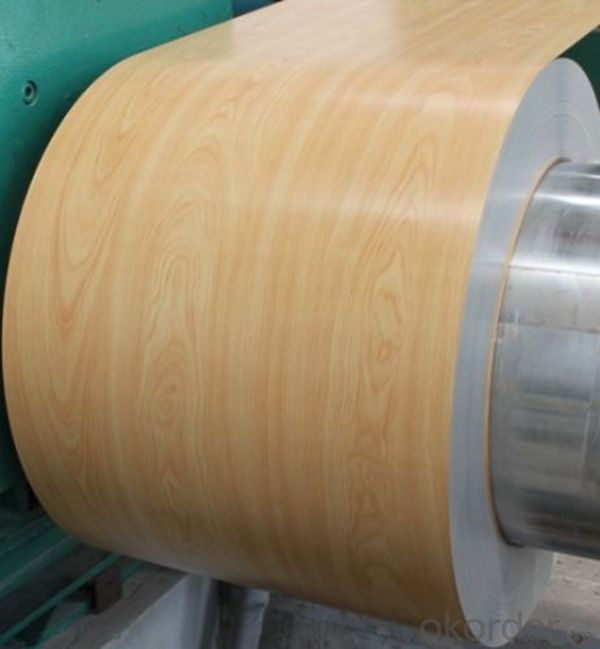
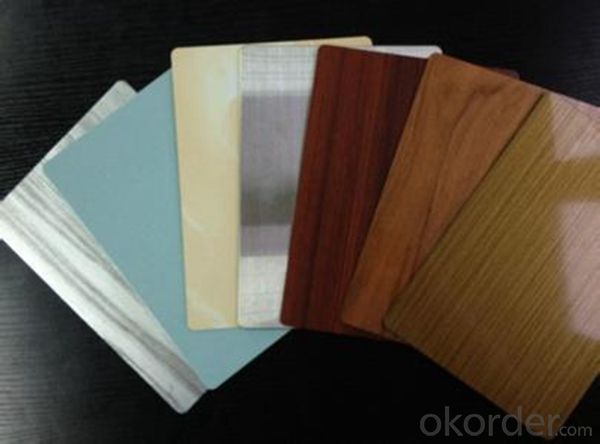
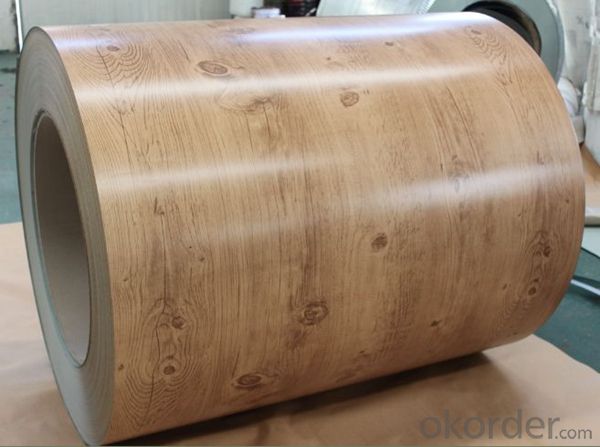
6. Package and shipping of Wooden Surface Coating Aluminum Coil for Interior Wall System
eye to wall
eye to the wall
with wood pallet (wooded case also available)
7. FAQ
1) What is the delivery time?
Dpends on actual order, around 20 to 35 days
2)What is the QC system:
We have QC staff of 20 persons and advanced equipment, each production is with MTC traced from Aluminum ingot lot.
3) What market do you mainly sell to?
Australia, America, Asia, Middle East, Western Europe, Africa etc
- Q: This question asks for guidelines on how to properly store aluminum coils to ensure their safety and longevity.
- <p>To store aluminum coils, follow these steps: Ensure the storage area is clean, dry, and free from dust and moisture. Keep the coils on wooden pallets or racks to avoid direct contact with the ground. Stack the coils with the same size and type to prevent damage. Use protective wrapping or covers to prevent scratches and dirt accumulation. Maintain proper ventilation to prevent condensation. Store coils away from corrosive materials and chemicals. Regularly inspect the coils for any signs of damage or corrosion. By following these guidelines, you can maintain the quality and integrity of aluminum coils during storage.</p>
- Q: How do aluminum coils contribute to energy-efficient lighting?
- The energy efficiency of lighting systems is greatly enhanced by aluminum coils. The exceptional thermal conductivity of aluminum coils is the main advantage when used in lighting applications. Due to its high thermal conductivity, aluminum can effectively transfer heat away from the light source and disperse it into the surroundings. This property prevents lighting fixtures from overheating and ensures the longevity and efficiency of the entire system. Furthermore, aluminum coils are lightweight and have a high strength-to-weight ratio, making them perfect for creating compact and durable lighting fixtures. By utilizing aluminum coils, manufacturers can design and produce lighting products that are lighter and more efficient, thereby reducing overall energy consumption. Additionally, aluminum coils have a high reflectivity, allowing them to efficiently distribute and reflect light. This characteristic results in better light output and ensures that a larger portion of the emitted light is effectively utilized, thereby reducing energy waste. Moreover, aluminum is a highly recyclable material that can be reused and repurposed multiple times without losing its qualities. This recyclability contributes to the overall sustainability of energy-efficient lighting systems, reducing the environmental impact associated with their production and disposal. To sum up, aluminum coils contribute to energy-efficient lighting by effectively dissipating heat, reducing energy consumption through lightweight designs, optimizing light distribution, and promoting sustainability through recyclability.
- Q: How do aluminum coils contribute to sustainable packaging?
- Aluminum coils play a significant role in promoting sustainable packaging practices. Firstly, aluminum is an infinitely recyclable material, meaning it can be recycled repeatedly without losing its properties or quality. This feature enhances the sustainability of packaging as it reduces the need for extracting and processing virgin materials, thereby conserving natural resources and minimizing the environmental impact associated with mining and production. Moreover, aluminum coils offer exceptional barrier properties, effectively protecting the packaged goods from external factors such as moisture, light, and oxygen. This barrier function helps to extend the shelf life of products, reducing food waste and preventing the need for additional packaging or preservatives. By keeping products fresh for longer periods, aluminum coils contribute to sustainable packaging by supporting efforts to combat food loss and promote resource efficiency. Furthermore, aluminum is lightweight, making it an ideal material for packaging. Its low weight allows for reduced transportation costs and energy consumption during shipping, contributing to overall carbon emissions reduction. The lightweight nature of aluminum coils also makes them convenient for end consumers, reducing the environmental impact associated with disposal and recycling. Additionally, aluminum is highly durable and resistant to corrosion, ensuring the integrity of the packaging throughout its lifecycle. This durability means that aluminum coils can be reused or repurposed, further reducing waste and extending the material's lifespan. In summary, the use of aluminum coils in packaging promotes sustainability in multiple ways. It contributes to a circular economy by being infinitely recyclable, reduces food waste through effective barrier properties, lowers carbon emissions through lightweight design, and encourages reuse and repurposing due to its durability. By incorporating aluminum coils into packaging solutions, we can make significant strides towards achieving a more sustainable and environmentally friendly packaging industry.
- Q: Are aluminum coils suitable for outdoor signage?
- Yes, aluminum coils are suitable for outdoor signage. Aluminum is a durable and weather-resistant material that can withstand various outdoor elements, such as rain, sunlight, and temperature changes. It is also lightweight, which makes it easier to install and transport. Additionally, aluminum coils can be easily shaped and formed into different designs, allowing for versatile and eye-catching signage options.
- Q: Is it possible to construct furniture or tables using aluminum coils?
- <p>Yes, aluminum coils can be used to make furniture or tables. Aluminum is a versatile material known for its strength, durability, and lightweight properties. It can be easily bent and shaped into various forms, making it suitable for furniture construction. Aluminum coils can be used to create the frame or support structure of tables and other furniture items. They are also resistant to corrosion and require minimal maintenance, making them a popular choice for outdoor furniture and modern interior designs.</p>
- Q: Are aluminum coils suitable for heat exchangers?
- Aluminum coils are indeed a fitting choice for heat exchangers. This is because aluminum possesses exceptional thermal conductivity, making it highly efficient and effective in transferring heat between mediums. Its ability to swiftly transfer heat from one medium to another is particularly advantageous for heat exchangers that require efficient heat transfer. Furthermore, aluminum coils are lightweight, resistant to corrosion, and boast excellent durability. These qualities contribute to their popularity in a wide range of applications, including heat exchangers. The corrosion resistance of aluminum ensures that the coils can endure harsh environments and prevent the occurrence of rust or corrosion, thereby prolonging the heat exchanger's lifespan. Moreover, aluminum coils are easily moldable and can be shaped into various forms, allowing for flexibility in designing and constructing heat exchangers. This adaptability makes them suitable for a diverse array of applications, such as HVAC systems, refrigeration units, and automotive cooling systems. In conclusion, the high thermal conductivity, lightweight nature, corrosion resistance, durability, and versatility of aluminum coils make them well-suited for heat exchangers. These properties establish aluminum coils as an excellent choice for achieving efficient heat transfer in numerous industries.
- Q: Can aluminum coils be used for electromagnetic shielding?
- Yes, aluminum coils can be used for electromagnetic shielding. Aluminum is a highly conductive material, which makes it effective at blocking or redirecting electromagnetic fields. When coils made of aluminum are used in electromagnetic shielding, they can help prevent the transmission of electromagnetic radiation by reflecting or absorbing it. This shielding property is particularly useful in applications where electromagnetic interference needs to be minimized, such as in electronic devices, communication systems, or sensitive equipment. Additionally, aluminum coils are lightweight and have good mechanical properties, making them a practical choice for electromagnetic shielding.
- Q: Can aluminum coils be formed into different shapes?
- Aluminum coils possess the capability to assume diverse configurations. Such metal, known for its high malleability, exhibits an ability to undergo bending, shaping, and forming without fracturing. This particular attribute deems it an optimal material for myriad applications necessitating flexibility and adaptability. Aluminum coils, employing a myriad of techniques like bending, rolling, stamping, extrusion, or even specialized machinery like a coil forming machine, can be fashioned into an array of shapes. These shapes encompass sheets, plates, tubes, wires, or intricate three-dimensional structures. The capacity to mold aluminum coils into assorted forms renders it an exceptional choice for sectors such as construction, automotive, aerospace, and manufacturing, where customized parts and components are frequently required.
- Q: What is the typical thickness of an aluminum coil?
- The typical thickness of an aluminum coil can vary depending on its intended use and application. However, in general, aluminum coils range in thickness from 0.006 inches (0.15 mm) to 0.25 inches (6.35 mm). Thinner aluminum coils are often used for lightweight applications such as packaging materials, while thicker coils are commonly used in construction, automotive, and aerospace industries where strength and durability are essential. It is important to note that the specific thickness requirements may vary based on the specific needs and specifications of the project or product being manufactured.
- Q: A cube of solid aluminum has a volume of 1.00 m3 at 20°C. What temperature change is required to produce a 130 cm3 increase in the volume of the cube?
- The linear expansivity of aluminum is 23 x10^-6 /K. Bulk expansivity is 3 x 23 x10^-6 / k For 130 [cm^3] the temperature required is 130 [cm] ^3/ 3 x 23 x10^-6 = 0.00013/[3 x 23 x10^-6] = 1.88 K ========================= If each side of the cube of side 1m expands by e, then its new volume = [1+e]^3 = 1 + 3e + 3e^2 +e^3. Neglecting high powers of e as negligible, the increase in volume is 3e. But e = 23 x10^-6 x rise in temperature 3e = 3*23 x10^-6 x rise in temperature. Given 3e = 0.00013 0.00013= 3*23 x10^-6 x rise in temperature Rise in temperature = 0.00013 / 3*23 x10^-6 = 1.88 K
Send your message to us
Aluminum Coil 8 X 50 - Wooden Surface Coating Aluminum Coil for Interior Wall System
- Loading Port:
- Shanghai
- Payment Terms:
- TT OR LC
- Min Order Qty:
- 5 m.t.
- Supply Capability:
- 10000 m.t./month
OKorder Service Pledge
OKorder Financial Service
Similar products
Hot products
Hot Searches
Related keywords
